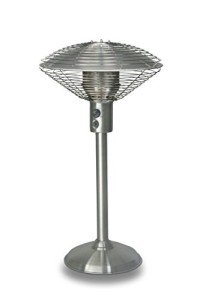What Is The Best Place To Research Gas Heaters Online
Understanding Gas Heaters: A Comprehensive Guide
Gas heaters are an important component of numerous families, providing warmth and convenience during the chillier months. With numerous types of gas heaters offered, comprehending their functioning, advantages, and safety procedures is vital for users. This short article offers an informative summary of gas heaters, how they work, and addresses regularly asked concerns on the topic.
Comprehending Gas Heaters
Gas heaters operate by burning natural gas or propane to produce heat. They are used to warm indoor areas and are often thought about more efficient than electric heaters. The main kinds of gas heaters include:
Types of Gas Heaters
Type
Description
Gas
Connected to a gas line and offers continuous heat supply.
Propane
Uses propane tanks, making it suitable for locations without gas lines.
Unvented
Burns gas without a vent system, ideal for well-ventilated areas.
Vented
Expels combustion gases outside, ideal for keeping indoor air quality.
Each type has its unique advantages and applications, making them ideal for various environments and preferences.
How Gas Heaters Work
Gas heaters typically make use of a combination of burners, heat exchangers, and blowers to disperse heat efficiently. The process typically includes:
- Ignition: Natural gas or propane is sparked either through a pilot light or an electronic ignition system.
- Combustion: The gas burns, developing heat which is then transferred to a heat exchanger.
- Heat Distribution: A blower or fan disperses the heated air throughout the space, developing a comfy environment.
- Exhaust: In vented systems, exhaust gases are expelled outside, preserving safety and avoiding toxic accumulation indoors.
Advantages of Gas Heaters
Gas heaters use various advantages that make them a popular option for heating spaces. Some of the key benefits include:
- Energy Efficiency: Gas heaters generally offer more heat per unit of fuel compared to electric heaters, making them a cost-effective heating option.
- Fast Heating: They warm up areas quickly, supplying immediate warmth when switched on.
- Eco-friendly: Natural gas is cleaner than coal and is considered a more environmentally friendly choice than electrical heating in numerous areas.
- Reliability: Gas heaters can continue to operate throughout power outages, guaranteeing continued convenience throughout extreme weather.
Disadvantages of Gas Heaters
While gas heaters have many benefits, there are likewise some downsides to think about:
- Installation Cost: The preliminary setup expense for gas lines or propane tanks can be high.
- Security Risks: There are fundamental risks connected with gas leakages and carbon monoxide poisoning, demanding careful setup and maintenance.
- Space Requirements: Some types of gas heaters (specifically vented ones) need substantial space for installation and exhaust systems.
Maintenance Tips for Gas Heaters
Appropriate maintenance is essential for ensuring the security and efficiency of gas heaters. The following ideas can assist preserve optimal efficiency:
- Annual Inspections: Have a qualified specialist examine the gas heater each year to check for leakages and guarantee appropriate performance.
- Tidy the Heater: Regularly tidy the heater and surrounding area to prevent dust accumulation, which can affect efficiency.
- Check Vents: Ensure that all vents are unblocked and operating correctly to prevent buildup of harmful gases.
- Display for Smells: Any uncommon smell, particularly gas, need to be addressed instantly by getting in touch with a professional.
FAQs about Gas Heaters
Q1: Are gas heaters safe to utilize inside?
Yes, gas heaters can be safe for indoor usage as long as they are appropriately installed and maintained. Vented gas heaters are particularly safe because they expel combustion gases outside, minimizing the threat of carbon monoxide poisoning.
Q2: How can I tell if my gas heater has a gas leak?
Indications of a gas leak consist of a foul odor looking like rotten eggs, hissing sounds, and dead plant life around the area. If you think a gas leak, it is vital to leave the properties right away and contact your gas service provider.
Q3: Do gas heaters require a source of power?
Most gas heaters do not need electricity to operate, particularly those that rely on natural gas. However, models with fans or electronic ignition systems will require a power supply.
Q4: What should I do if I smell gas near my heater?
If you smell gas, you ought to immediately leave the area, prevent using any electrical gadgets, and call your gas provider or emergency situation services from a safe distance.
Q5: What is the lifespan of a gas heater?
Generally, gas heaters have a life expectancy of 10 to 15 years with correct upkeep. Routine evaluations can assist extend their functional life.
Gas heaters can be an efficient and reputable way to keep homes warm and comfortable throughout cold weather months. Their numerous styles and advantages cater to different requirements and choices. Nevertheless, understanding their functioning, prospective safety issues, and upkeep requirements is essential for any house owner considering or presently using gas heating. By following Buy Outdoor Heating Solutions and staying informed, users can take pleasure in the heat and performance of gas heaters for years to come.
